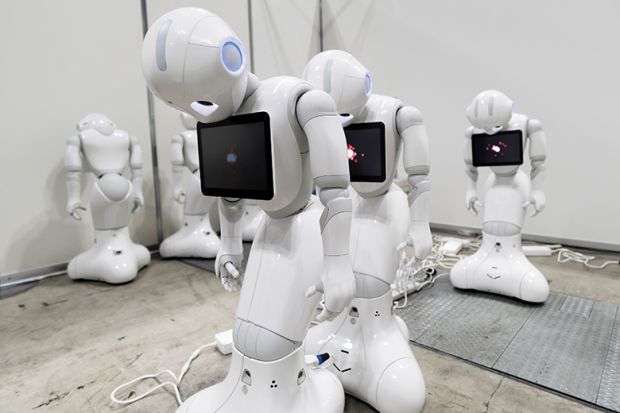Early career international academics in Japanese universities feel “marginalised” and “disillusioned” despite decades of state-sponsored efforts to recruit them, according to a study.
Since the 1980s, Japan has incentivised its universities to attract international staff and students in order to improve its rankings performance and offset domestic demographic decline through a series of excellence initiative-style projects.
But the proportion of scholars in the country who are from overseas remains much lower than in other developed sectors – just 4 per cent, according to 2015 data, although this had increased from 1 per cent in 1980.
Interviews conducted with early career academics from overseas who started work in 13 Japanese universities between 2008 and 2018 found a perceived lack of genuine zeal for internationalisation in institutions, with foreign scholars being left feeling like “tokenised symbols” or “second-order” academics.
Writing in Higher Education, researchers from the University of Oxford and Hiroshima University say that their 23 interviewees “were critical about the progress of internationalisation in practice and demonstrated disillusionment with their potential to contribute to reform”.
International academics described how their ideas “were rejected outright as being too risky, despite being tailored to the requests of departmental superiors”, and were often blocked by older, high-ranking faculty “who were dubious of – or even actively against – reforms in the twilight of their careers”.
“I feel like they just want to work peacefully as they always have and are afraid of being wrapped up in the tornado of change,” one interviewee said.
As a result, some interviewees felt that their presence was tokenistic and that one of their primary purposes was for marketing, because Japanese parents want their children to be exposed to international influences.
“For university publicity, they need some blue-eyed faces on photos, so I do feel that my colleagues and I are a little bit tokenish,” one interviewee said.
This importance in marketing contrasted with the experience on campus, with interviewees describing feeling “micromanaged to ensure they would not cause disruption”. One said that managers “managed my efforts 100 per cent”, meaning that they could not do research or apply for grants.
Interviewees also complained about being excluded from faculty meetings and other democratic processes, often because they were hired on fixed-term contracts.
“We are second-order academics,” one interviewee said.
One of the study authors, Thomas Brotherhood, said that universities focused on recruiting international staff and “aren’t putting the same focus on how they are being integrated and what they actually do when they arrive”.
“Universities in Japan use internationalisation to modernise their universities, but the current way in which they are doing that, particularly with regards to international faculty, is being unsuccessful, in their own terms,” said Mr Brotherhood, a doctoral candidate at Oxford’s Centre for Global Higher Education.
“If you really want your universities to change, then there has to be a sense of meeting these new faculty halfway and allowing the differential of skills and the experiences that they bring with them, to make meaningful change in your universities.
“So you have to allow them to get into positions of leadership; you have to allow them the power to make reforms in their institutions; and you have to allow them not to be hamstrung by tradition.”
POSTSCRIPT:
Print headline: Foreign academics in Japan report being ‘marginalised’ and ‘disillusioned’
Register to continue
Why register?
- Registration is free and only takes a moment
- Once registered, you can read 3 articles a month
- Sign up for our newsletter
Subscribe
Or subscribe for unlimited access to:
- Unlimited access to news, views, insights & reviews
- Digital editions
- Digital access to THE’s university and college rankings analysis
Already registered or a current subscriber? Login








